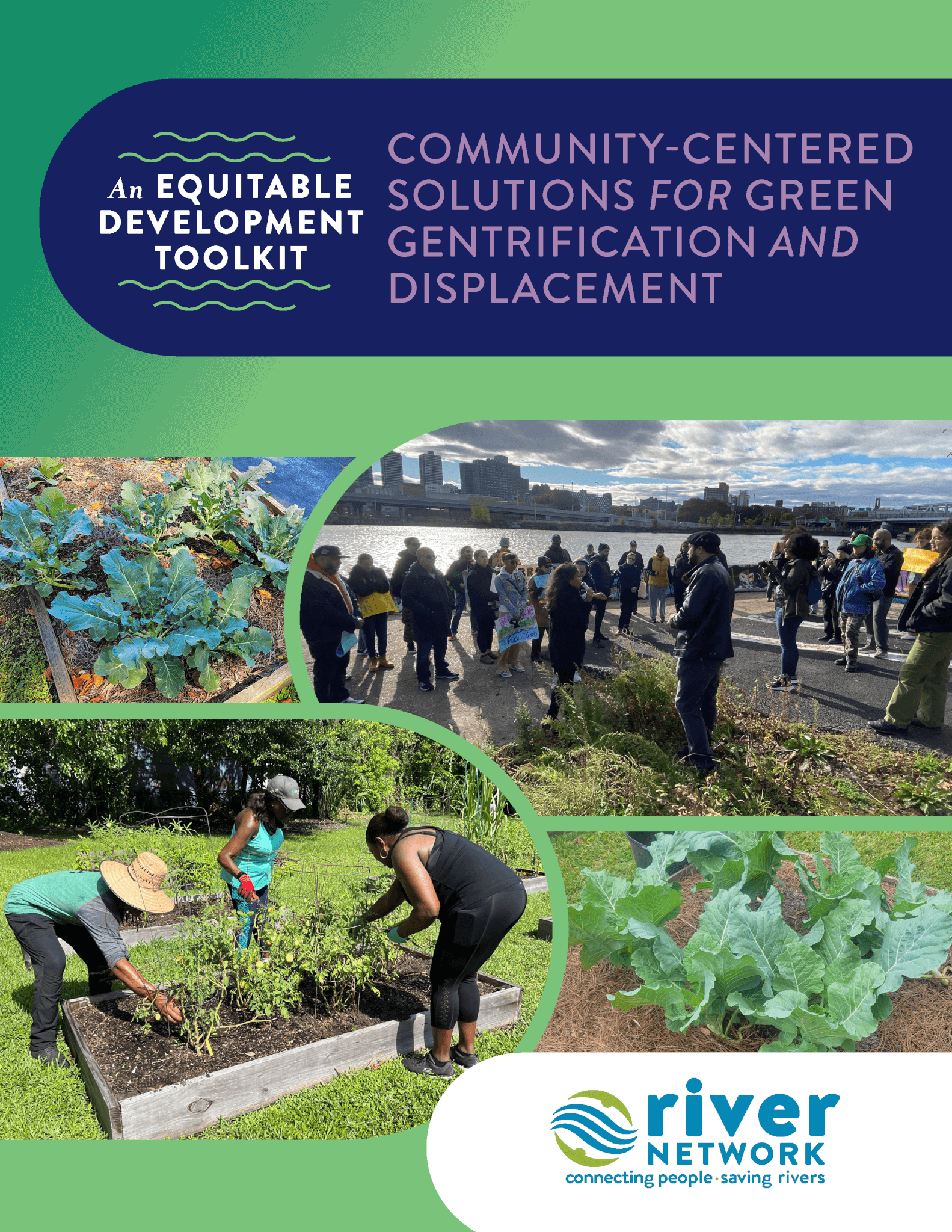Introducing a New Equitable Development Toolkit
Across the country, neighborhoods that are majority Black, Indigenous, people of color, and low-income are disproportionately facing the worst and most extreme climate-related impacts. Following decades of discriminatory policies and practices – including intentional underinvestment in critical services, resources, and infrastructure – there is a clear need for green improvements in these communities to mitigate climate and public health risks. However, while residents recognize this need and want more parks, greenspaces, and safe recreational amenities, many fear the risks of gentrification and displacement that development can bring.
These fears are founded. Multiple studies show that greening projects in disproportionately impacted communities led to a reduced sense of belonging among long-time residents, coinciding with an increase in property values and followed by the displacement of surrounding communities. Nationwide, organizations are increasingly working with impacted communities to create greenspaces, prevent flooding, restore forests, and implement other projects that build resilience and create healthier environments. As groups dive deeper into this work, it is critical to center anti-displacement strategies by thinking beyond environmental needs and incorporating the needs of community members, now and into the future.
While many groups are aware of displacement and gentrification risks inherent to greening projects, not everyone has access to the right tools or resources to address them. With support from the National Park Service’s Rivers, Trails, and Conservation Assistance program, we’re excited to announce the release of River Network’s new toolkit, An Equitable Development Toolkit: Community-Centered Solutions for Green Gentrification and Displacement. The toolkit provides important definitions, case studies, and numerous strategies groups can apply in their greening projects.
We have an opportunity to avoid the mistakes of the past, and to create equitable development practices that give communities opportunities to lead, share their community priorities, and create policies that allow them to stay in place. We hope you will dive into this toolkit and leverage these tools, tips, and practices to further your work!






